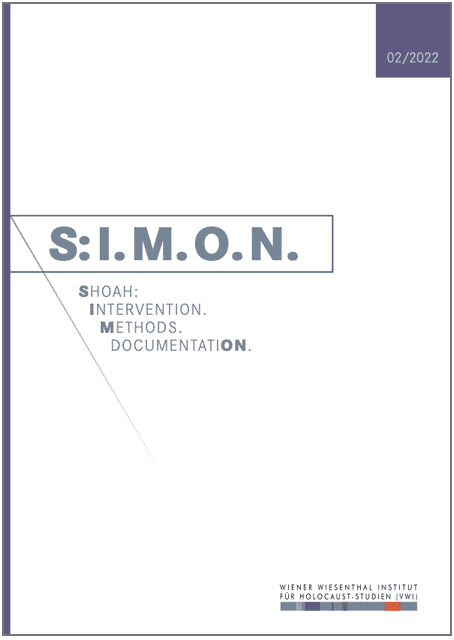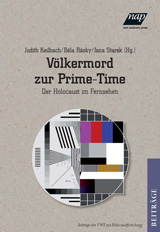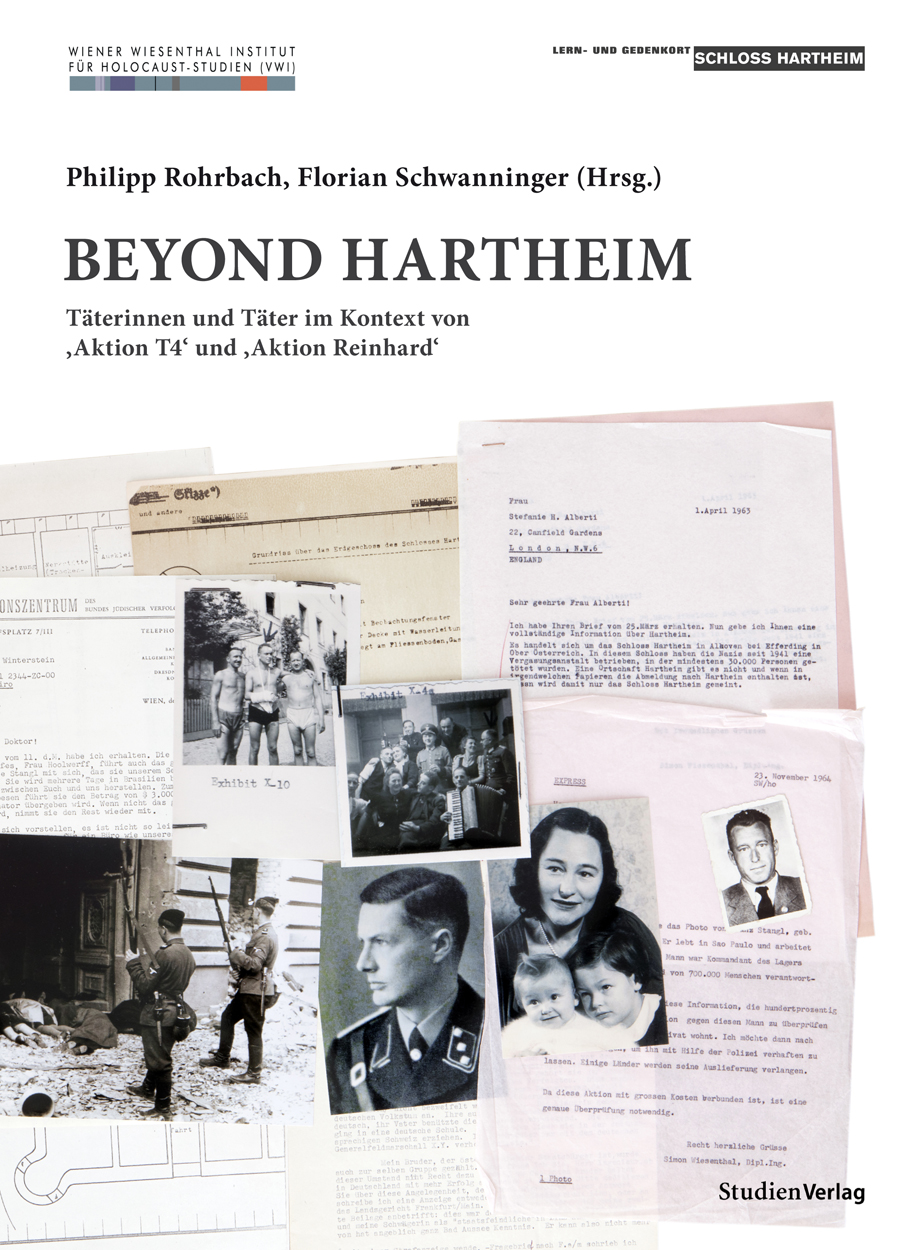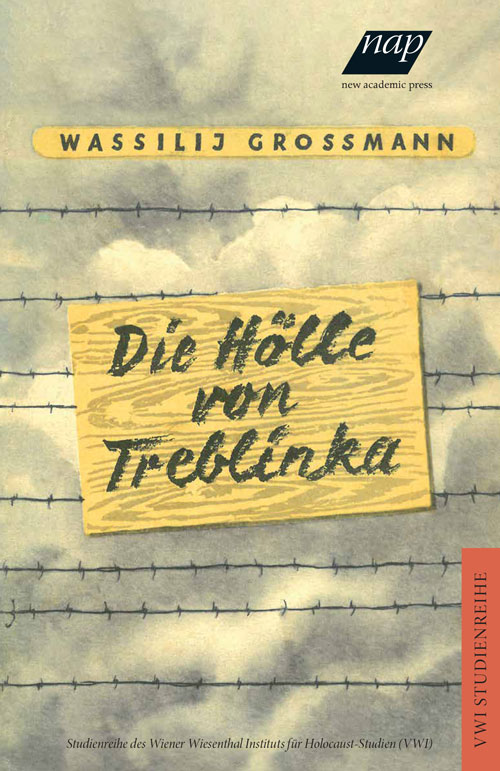News – Events – Calls
| 24. April 2024 19:00 BuchpräsentationIngeborg Bachmann, Marie Luise Kaschnitz, Hilde Domin, Nelly Sachs: Über Grenzen sprechend. Briefe. Piper/Suhrkamp, München, Berlin, Zürich 2023Ingeborg Bachmann stand mit zentralen Protagonistinnen der deutschsprachigen Literatur im Austausch, nun werden ihre Briefwechsel mit Marie Luise Kaschnitz, Hilde Domin und Nelly Sachs erstmals zugänglich gemacht. Die Briefe geben Einblick in die Lebensbedingungen, das literarische S...Weiterlesen... |
| 02. May 2024 18:30 Simon Wiesenthal LectureEdyta Gawron: Never Too Late to Remember, Never Too Late for Justice! Holocaust Research and Commemoration in Contemporary PolandIn 1994, Simon Wiesenthal received a doctorate honoris causa from the Jagiellonian University in Krakow for his lifelong quest for justice – half a century after he had been, for a short time, prisoner of the local Nazi Concentration Camp (KL) Plaszow. The 1990s were the decade when t...Weiterlesen... |
| 07. May 2024 00:00 - 04. June 2024 00:00 WorkshopDealing with Antisemitism in the Past and Present. Scientific Organisations and the State of Research in AustriaThis series of talks, presented by antisemitism experts from different organisations that research antisemitism using a variety of academic approaches, aims to provide a snapshot of historical evolutions, current events, prevalent perceptions and declared (and undeclared) attitudes. I...Weiterlesen... |
| 14. May 2024 08:45 - 16. May 2024 16:30 TagungQuantifying the Holocaust. Classifying, Counting, Modeling: What Contribution to Holocaust History? About the conference: https://quantiholocaust.sciencesconf.org/ Programme timed on the basis of 15-minute presentations + 15-minute discussions; short breaks and lunches Day 1 Tuesday, 14 May 2024Centre Malher (9 rue Malher 75004 Paris/amphi Dupuis) From 8.45 am: Welcome9.30 am...Weiterlesen... |
| 24. May 2024 18:00 InterventionLange Nacht der Forschung 20242024 öffnet das Wiener Wiesenthal Institut für Holocaust-Studien (VWI) in der Langen Nacht der Forschung wieder seine Tore und lädt Interessierte in seine Räumlichkeiten am Rabensteig 3 ein. Im Rahmen von Vorträgen, Podiumsdiskussionen und Präsentationen bieten VWI-Team und Gäste Einb...Weiterlesen... |
Michala Lônčíková
Ernst Mach Grant Recipients (02/2019–07/2019)
Antisemitic Propaganda during the Second World War. The Case of the Slovak State and the Independent State of Croatia
 Michala Lônčíková’s dissertation focuses on antisemitic propaganda in two former Nazi satellites, the Slovak State and the Independent State of Croatia.
Michala Lônčíková’s dissertation focuses on antisemitic propaganda in two former Nazi satellites, the Slovak State and the Independent State of Croatia.
The two selected countries provide an ideal comparative model for analysing the representation of Jews as an enemy of national regime. During the interwar period, both Slovaks and Croats struggled for autonomy within a multinational state and later created a national state under the umbrella of Nazi Germany. Both political regimes eliminated their potential political and ideological opposition, took control over the mass media, and established a totalitarian political system. Finally, their ruling regimes rested upon similar ideological pillars: Christianity and nationalism. This project contextualises the relationship of antisemitism to political power in the Slovak and Croat Nazi satellite states through an analysis of textual and visual media campaigns, taking into account the diverse perceptions of Jewish communities among the majority societies.
Michala Lônčíková, holds MA degree in History from the Comenius University in Bratislava and since 2012 she has been a PhD. Candidate at the Department of General History at the Faculty of Arts there. She participated in the international comparative project on Post-WWII Antisemitic Pogroms in East and East Central Europe: Collective Violence and Popular Culture, funded by the Gerda Henkel Stiftung. Currently she is a historian at the Holocaust Documentation Center in Bratislava and as such she is also a contributor to the European Holocaust Research Infrastructure (EHRI) project.
Michala Lônčíková will be working at the institute as a recipient of the Ernst Mach-Grant of the Aktion Österreich-Slowakei.










